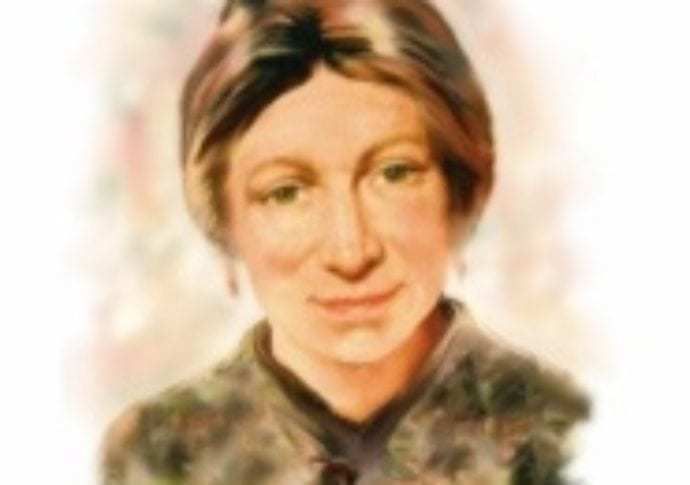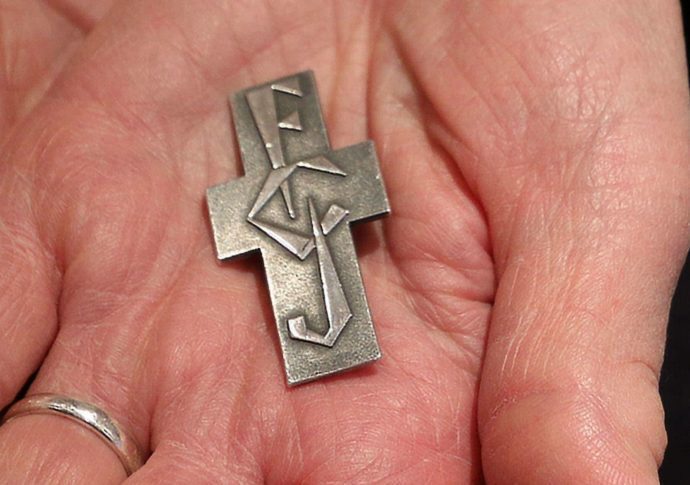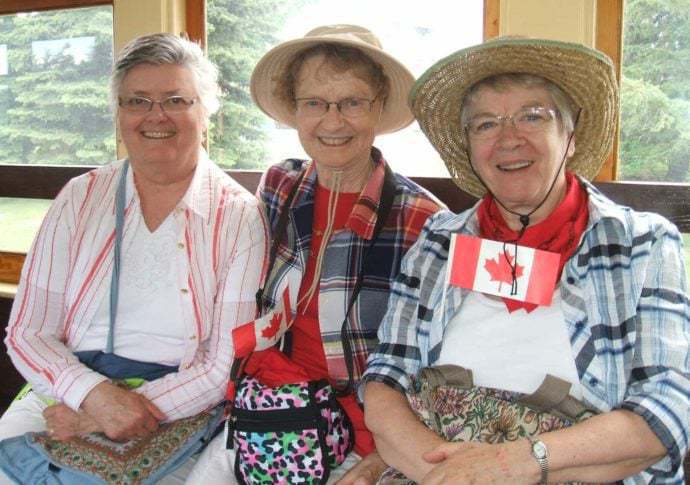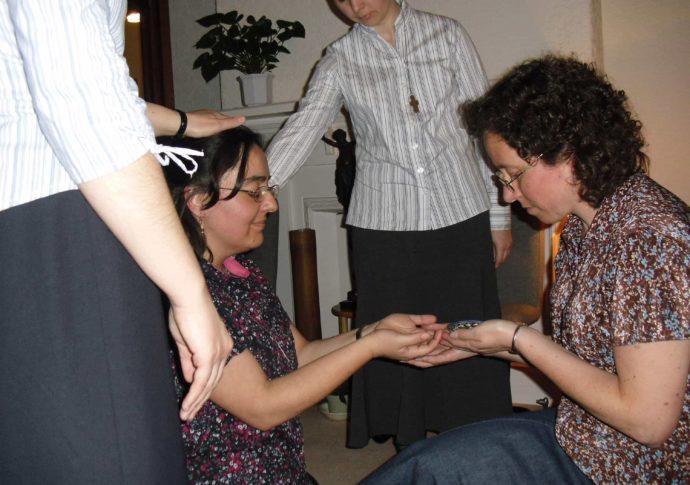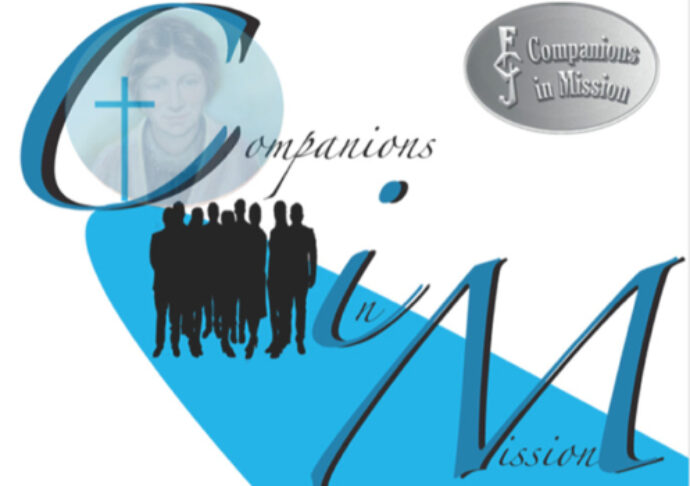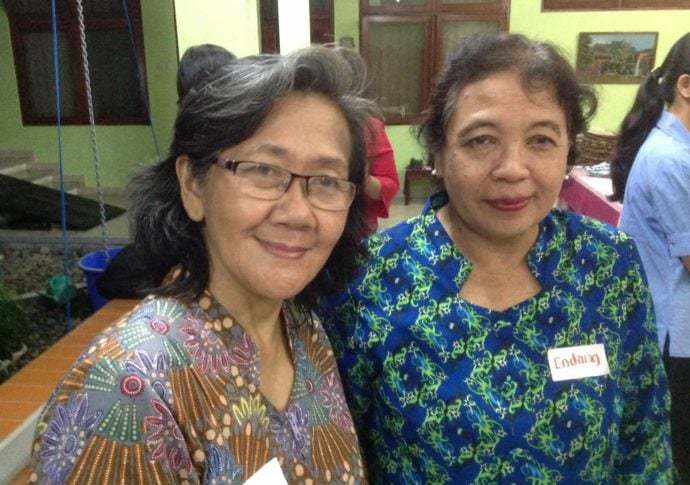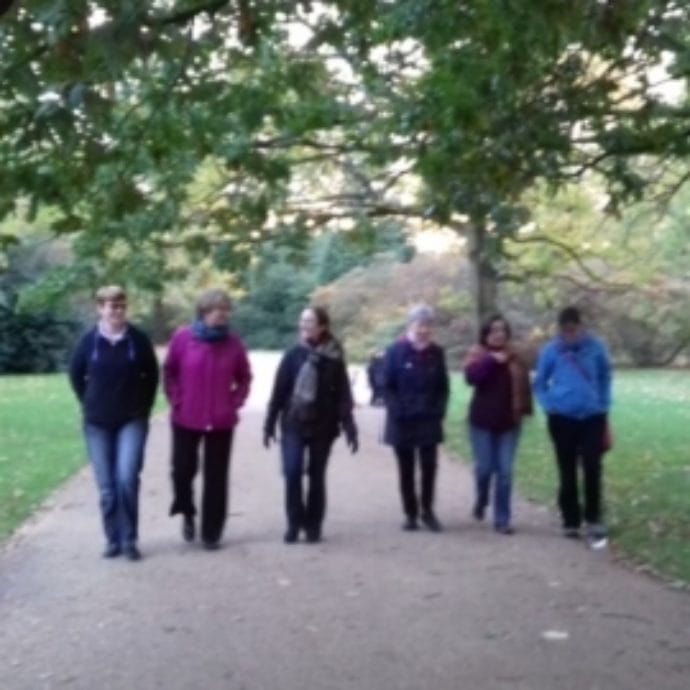CIM Mission

CIM Mission
What is our mission as CiMs?
Companions in Mission come from different countries and continents, genders, ages, and walks of life. Some are parents or singles, homemakers or teachers, youth workers or accountants, retired or young. But, in the midst of our diversity, we are all called to the same mission.
What is this mission? It has its roots in our baptism, in which, as members of the Christian community, we are sent like Jesus to bring about the reign of God in our world. As Companions in Mission, though, this mission takes on a particular form. We are called to live out in the concrete realities of our daily lives a spirituality first gifted to the world by the Holy Spirit through Marie Madeleine d’Houët, entrusted to the FCJ Society, and now, also to us as Companions in Mission: a spirituality of companionship.

“What brings me joy as a CiM is being part of a large loving faith community that helps me companion with Jesus and the world.”
Mary, Australia
“What brings me joy as a CiM is having increasing awareness of God’s loving presence in the midst of the many challenges… in my life.”
Natalia Erlina, Indonesia
What does living companionship mean in our time?
Marie Madeleine felt a strong affinity to the women who stood at the cross of Jesus, accompanying him in his suffering. To her FCJ sisters she wrote, “We stand at the foot of the cross of Jesus, uniting ourselves with the redemptive offering of the risen, glorious Christ, that we may become a community of his faithful companions in spirit and in truth.” (FCJ Constitutions #9)
Through the years, those who followed in her footsteps have sought to discover what this meant in their particular contexts. Today, in the age of information and technology, we are more than ever aware of our interconnectedness with each other and with all of God’s creation. We know that the whole of the universe reflects God’s beauty and abundance. And yet we are also acutely aware of the suffering of so many in our world who are lost, forsaken and forgotten at the margins of society.

Companionship today then necessarily involves standing “at the foot of contemporary crosses… [to be] channels of hope, love and mercy” wherever we are; to bring “more love, more union, [and] more compassionate solidarity” to our world. (FCJ General Chapter Directions 2013)
What this means in the life of each CiM is necessarily different. To one it might mean working directly with the poor; to another, living out gospel values in the corporate world; and to yet another, simply being present to someone in need of love. Our commitment as CiMs is a commitment to more consciously and intentionally being that unique face of God that we are called to be in the world, through our companionship with others.
What brings me joy as a Companion in Mission is imbibing the charism of Marie Madeleine and, in the company of faith-filled people, discerning ways of living out her legacy.

„I am hoping to grow spiritually and help my colleagues and school keep the charism alive of Marie Madeleine and the FCJ Sisters that she so courageously founded.“
Pamela, USA
„I hope to be able to continue to be sent out into my small world to serve whoever has need and to be courageous and confident with Jesus always in my heart.“
Jo Ann, USA
Sent as a community of companions
What an exciting mission indeed! And as we are sent we know that we do not go alone. As CiMs we are part of a loving and discerning community of fellow CiMs and FCJ sisters around the world who share in this same mission. In fact, “[t]he interweaving of our lives [as CiMs and FCJs] leads to fresh insights beckoning us to wider horizons.” (FCJ General Chapter Directions 2013)
What “wider horizons” await us now?

“What brings me joy as a CiM is working with less fortunate people… through them I have really seen the reign of God.”
Rossele, Philippines
“What brings me joy as a CiM is meeting others who are interested in promoting justice in the world.”
Margaret, Australia
Birthing kits – Being Companions
One practical way of being companions to women in developing countries – from whom we are separated geographically – is through making Birthing Kits. Together with the FCJ Sisters, the CiM in Melbourne, Australia, gather annually at the canteen of Genazzano College to create kits from items ordered and purchased beforehand. We cut and fold plastic and twine, insert soap into rubber gloves, adding other basic necessities before packing the kits tightly into small bags. This year we made 400 kits and they will be distributed with other kits made in Australia to women in developing countries lacking these necessities when giving birth. For all who gather for this project, our time together is a true expression of interweaving, enabling us to be ‘channels of hope, love and mercy’ for others. (Final document of the FCJ General Chapter 2013)


Companions in Mission and FCJ Sisters making birthing kits in Australia.





